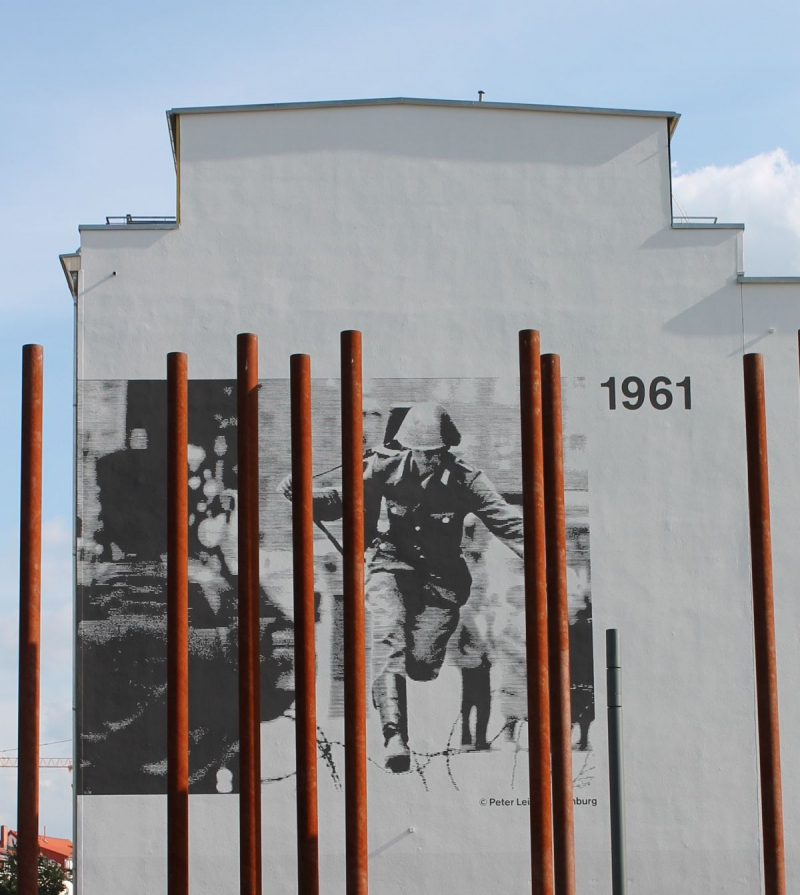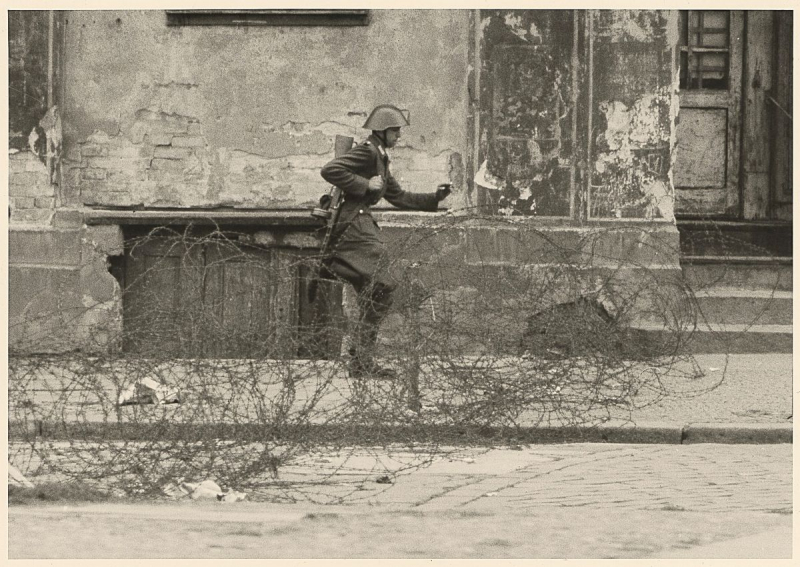Leap over the Barbed Wire

© Stiftung Berliner Mauer
If you glance over to the fire wall on the side of the building in front of you, you’ll recognize a world-famous picture: It shows a border policeman jumping over barbed wire. This “leap to freedom” took place at Bernauer Straße.
The border policeman Conrad Schumann was 19 years old when he jumped over the rolls of barbed wire at the corner of Bernauer and Ruppiner Straße on the afternoon of August 15, 1961. Trained as a sheepherder, the young man from Zschochau in Saxony was stationed as a head constable in East Berlin. When the measures to seal off the border began on August 13, 1961, his unit was posted right on the sector boundary at Bernauer Straße. While serving duty there, Conrad Schumann made the decision to flee.

Border policeman Conrad Schumann escapes, August 15, 1961 © Polizeihistorische Sammlung Berlin
On August 15, 1961, Conrad Schumann was posted as a guard at Ruppiner Straße – directly at the barbed wire obstacle placed at the border. He spontaneously decided to take advantage of the opportunity presented to him. When no one was looking, he pressed down a bit on the barbed wire and gave photographers who were standing on the West Berlin side a signal. They recognized his plan to escape. The West Berlin police positioned their car a few meters from the barbed wire and left the back door open. The photographers pointed their cameras at the other border guards nearby so that they would turn around and move away from the border. It was about 4 p.m. when Schumann jumped. When the other border guards turned back, they saw Conrad Schumann being driven away at high speed in a West Berlin police car.
Schumann’s escape caused quite a stir. Representatives of the Ministry for State Security and the East German police first agreed to portray his escape as a kidnapping. But given the broad press coverage in the West it was hard to maintain this depiction.
Conrad Schumann remained in the West Berlin refugee center in Marienfelde until the end of September 1961. Then he was flown out by the West German federal government and was able to build a new life for himself in Bavaria. The picture of him jumping became an icon. It haunted him his entire life – along with an enduring fear of the Stasi. He claimed that he never regretted his escape. But for reasons that are not known, he committed suicide in the summer of 1998.
Like Conrad Schumann, many of the border guards recognized the inhumanity of the border regime while serving duty. Fleeing to the West often seemed to be the only way to escape the pressure to fire their weapon at the people trying to escape to the West. Despite the many counter and surveillance measures taken, many members of the border troops attempted to escape before the Wall fell.